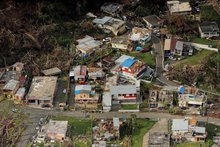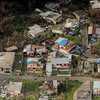0
Report
Community:
Sep 27, 2017
The Bureau of Labor Statistics estimates that from 2014-2024, employment in healthcare occupations is projected to grow by 19 percent and add about 2.3 million jobs. Yet, these workers often do not earn enough to live in communities they serve.
The report, which focuses on the affordability challenges faced by healthcare workers, highlights five fast growing healthcare occupations: dental assistant, emergency medical technician, home health aide, licensed practical nurse and physical therapy aide.
Authored by: Kaitlyn Snyder for NATIONAL HOUSING CONFERENCE
Topics: Funding, Legislation & Policy, Stability, Workforce development
 Shared by Housing Is
Shared by Housing Is
Housing Is posted a
on Oct 20, 2020
Kaitlyn Snyder for NATIONAL HOUSING CONFERENCE
The Bureau of Labor Statistics estimates that from 2014-2024, employment in healthcare occupations is projected to grow by 19 percent and add about 2.3 million jobs.
0
Research
Community:
Aug 5, 2019
CLPHA developed a general data sharing template that public housing authorities (PHAs) and their health partners can customize to suit their data sharing and collaboration needs. Please feel free to comment to share any uses/modifications your organization made to implement into a partnership.
Authored by:
Topics: Affordable Care Act, CLPHA, Community development, Cost effectiveness, Data sharing, Dental, Depression, Dual-eligibles, Funding, Health, Healthy homes, Legislation & Policy, Low-income, Medicaid / Medicare, Mental health, Metrics, MTW, Nutrition, Obesity, Partnerships, Place-based, Preventative care, Racial inequalities, Research, SAMHSA, Smoke-free, Stability, Substance abuse, Supportive housing, Sustainability, TA
 Shared by Steve Lucas
Shared by Steve Lucas
Steve Lucas posted a
on Aug 5, 2019
Disclaimer: This template is provided for informational purposes only and not for the purpose of providing legal advice. You should contact your attorney to obtain advice with respect to any particular issue or question. Use of this template, including its exhibits and attachments, does not create a relationship or any responsibilities between CLPHA and the user.
CLPHA developed a general data sharing template that public housing authorities (PHAs) and their health partners can customize to suit their data sharing and collaboration needs. Please feel free to comment to share any uses/modifications your organization made to implement into a partnership.
0
Research
Community:
Feb 5, 2019
Housing is considered a social determinant of health, with poor housing conditions being associated with poor health. Veterans with disabilities are more likely to experience a housing crisis because of combat experiences and employment instability. We identified facilitators and barriers to finding and maintaining rental housing. We sought to understand the housing needs of Veterans with military-related disabilities using the biopsychoecological model (BEM) as an organizing framework.
Authored by: Semeah, Ahrentzen, Cowper-Ripley, Santos-Roman, Beamish, and Farley for Housing Policy Debate
Topics: Disabilities, Funding, Health, Homelessness, Housing, Legislation & Policy, Research, Safety, Seniors, Stability
 Shared by Housing Is
Shared by Housing Is
Housing Is posted a
on Mar 14, 2019
Semeah, Ahrentzen, Cowper-Ripley, Santos-Roman, Beamish, and Farley for Housing Policy Debate
Housing is considered a social determinant of health, with poor housing conditions being associated with poor health. Veterans with disabilities are more likely to experience a housing crisis because of combat experiences and employment instability.
0
News Article
Community:
Mar 5, 2019
Disasters are becoming more common in America. In the early and mid-20th century, fewer than 20 percent of U.S. counties experienced a disaster each year. Today, it's about 50 percent. According to the 2018 National Climate Assessment, climate change is already driving more severe droughts, floods and wildfires in the U.S. And those disasters are expensive. The federal government spends billions of dollars annually helping communities rebuild and prevent future damage. But an NPR investigation has found that across the country, white Americans and those with more wealth often receive more federal dollars after a disaster than do minorities and those with less wealth. Federal aid isn't necessarily allocated to those who need it most; it's allocated according to cost-benefit calculations meant to minimize taxpayer risk.
Authored by: Rebecca Hersher and Robert Benincasa for NPR
Topics: Community development, Funding, Housing, Legislation & Policy, Low-income, Racial inequalities, Research, Stability
 Shared by Mica O'Brien
Shared by Mica O'Brien
Mica O'Brien posted a
on Mar 7, 2019
Rebecca Hersher and Robert Benincasa for NPR
Disasters are becoming more common in America. In the early and mid-20th century, fewer than 20 percent of U.S. counties experienced a disaster each year. Today, it's about 50 percent.
0
Video
Community:
Feb 13, 2019
U.S. House Committee on Financial Services, Full Committee
Authored by: U.S. House Committee on Financial Services
Topics: Funding, Homelessness, Housing, Legislation & Policy, Research, Stability
 Shared by Mica O'Brien
Shared by Mica O'Brien
Mica O'Brien posted a
on Feb 19, 2019
U.S. House Committee on Financial Services
U.S. House Committee on Financial Services, Full Committee
0
News Article
Community:
Feb 12, 2019
The Board of Supervisors on Tuesday gave the green light for San Diego County to apply for up to $125 million in state funding to help people get off the streets and receive mental health treatment.
Authored by: Alexander Nguyen for Times of San Diego
Topics: Funding, Homelessness, Housing, Legislation & Policy, Low-income, Mental health, Stability, Substance abuse, West Coast
 Shared by Mica O'Brien
Shared by Mica O'Brien
Mica O'Brien posted a
on Feb 14, 2019
Alexander Nguyen for Times of San Diego
The Board of Supervisors on Tuesday gave the green light for San Diego County to apply for up to $125 million in state funding to help people get off the streets and receive mental health treatment.
0
News Article
Community:
Feb 4, 2019
The U.S. territory needs to urgently tackle issues such as "widespread informal housing" and "the exorbitant amount of abandoned spaces" as it rebuilds after Hurricane Maria.
Authored by: Nicole Acevedo for NBC News
Topics: Community development, Food insecurity, Funding, Homelessness, Housing, Legislation & Policy, Nutrition, Safety, Stability, U.S. Territories
 Shared by Housing Is
Shared by Housing Is
Housing Is posted a
on Feb 4, 2019
Nicole Acevedo for NBC News
The U.S. territory needs to urgently tackle issues such as "widespread informal housing" and "the exorbitant amount of abandoned spaces" as it rebuilds after Hurricane Maria.
0
News Article
Community:
Jan 30, 2019
More than 130,000 households in Los Angeles County receive some form of federal rental assistance and were at risk of not being able to pay their rent if the shutdown had lasted through the end of February. But the mere threat of thousands of poor people returning to homelessness in L.A. — and the possibility of that threat happening again — has rattled government officials and affordable housing advocates.
Authored by: Benjamin Oreskes and Doug Smith for The Los Angeles Times
Topics: CLPHA, Funding, Homelessness, Housing, Legislation & Policy, Stability, West Coast
 Shared by Housing Is
Shared by Housing Is
Housing Is posted a
on Jan 30, 2019
Benjamin Oreskes and Doug Smith for The Los Angeles Times
More than 130,000 households in Los Angeles County receive some form of federal rental assistance and were at risk of not being able to pay their rent if the shutdown had lasted through the end of February. But the mere threat of thousands of poor people returning to homelessness in L.A.
0
Publication
Community:
Jan 24, 2019
Affordable housing campaigns are not new, of course, but what is unprecedented and transformative about Opportunity Starts at Home is the scope and diversity of the partners that are joining forces to advocate for more robust and equitable federal housing policies. The campaign is advised by a Steering Committee including leading national organizations representing a wide range of interests that are working shoulder-to-shoulder to solve the affordable housing crisis.
Authored by: Opportunity Starts at Home
Topics: Asset building, Child welfare, CLPHA, Community development, Early childhood, Education, Food insecurity, Funding, Health, Homelessness, Housing, Immigrants, Legislation & Policy, Low-income, Mobility, Out-of-school time, Partnerships, Racial inequalities, Safety, Seniors, Stability, Substance abuse, Youth
 Shared by Mica O'Brien
Shared by Mica O'Brien
Mica O'Brien posted a
on Jan 24, 2019
Opportunity Starts at Home
Affordable housing campaigns are not new, of course, but what is unprecedented and transformative about Opportunity Starts at Home is the scope and diversity of the partners that are joining forces to advocate for more robust and equitable federal housing policies.
0
News Article
Community:
Nov 30, 2018
The city and county of Durham, GoTriangle and the Durham Housing Authority are committed to enhancing opportunities for existing low-income families as well as to increasing the production of affordable housing. The light-rail project is critical to the success of these goals, and the success of these goals is critical to the light-rail project.
Authored by: Anthony Scott and John Tallmadge for The Herald Sun
Topics: Community development, Funding, Housing, Legislation & Policy, Low-income, Partnerships, South, Stability, Transportation
 Shared by Mica O'Brien
Shared by Mica O'Brien
Mica O'Brien posted a
on Dec 3, 2018
Anthony Scott and John Tallmadge for The Herald Sun
The city and county of Durham, GoTriangle and the Durham Housing Authority are committed to enhancing opportunities for existing low-income families as well as to increasing the production of affordable housing.
0
Research
Community:
Oct 1, 2018
Although the rental assistance programs varied, key themes emerged, including (1) most programs, recognizing the impact of housing stability on health outcomes, targeted populations served by state or local health and human services programs; (2) most programs served a growing number of households over time; (3) funding generally increased over time and most of it came from general revenue; and (4) programs involved collaboration between the housing and health and human services agencies to ensure clients’ needs were comprehensively met.
Authored by: Anna Bailey, Peggy Bailey, and Douglas Rice for the Center on Budget and Policy Priorities
Topics: Funding, Health, Housing, Legislation & Policy, Low-income, Partnerships, Place-based, Research, Stability
 Shared by Mica O'Brien
Shared by Mica O'Brien
Mica O'Brien posted a
on Oct 9, 2018
Anna Bailey, Peggy Bailey, and Douglas Rice for the Center on Budget and Policy Priorities
Although the rental assistance programs varied, key themes emerged, including (1) most programs, recognizing the impact of housing stability on health outcomes, targeted populations served by state or local health and human services programs; (2) most programs served a growing number of households o
0
Report
Community:
Nov 1, 2017
Why do some neighborhoods appear able to launch effective local improvement initiatives, while others are more hampered by fragmentation and mistrust? Why can some communities mobilize diverse constituencies to influence public policy, while others cannot? Answers to these questions may be found in the specific patterns of collaboration that form among community organizations, and between these groups, schools, public agencies, and elected officials, according to MDRC, a preeminent social-policy research organization.
Authored by: MDRC
Topics: Asset building, Child welfare, Community development, Data sharing, Dual-generation, Education, Family engagement, Funding, Health, Housing, Legislation & Policy, Low-income, Metrics, Midwest, Mobility, Out-of-school time, Partnerships, Place-based, Preventative care, Research, Safety, Stability, Workforce development, Youth
 Shared by Mica O'Brien
Shared by Mica O'Brien
Mica O'Brien posted a
on Jun 29, 2018
Why do some neighborhoods appear able to launch effective local improvement initiatives, while others are more hampered by fragmentation and mistrust? Why can some communities mobilize diverse constituencies to influence public policy, while others cannot?
1
Video
Community:
May 23, 2018
The Council of Large Public Housing Authorities (CLPHA) hosted The Housing Is Summit in Washington, D.C., on May 3-4, 2018 with 300 partners across the housing, education, and healthcare sectors. Access video recordings of the Summit's keynote speakers (HUD Secretary Ben Carson, John Bridgeland, Matthew Morton), plenary panels (on topics that cut across sectors like anchor institutions, data collaboration, stability, and foundation investments), and select breakout sessions focused on the intersections of housing, education, and health.
Authored by: Council of Large Public Housing Authorities
Topics: Affordable Care Act, Attendance, Child welfare, CLPHA, Community development, Data sharing, Dual-eligibles, Dual-generation, Early childhood, Education, Funding, Grade-level proficiency, Health, Healthy homes, Homelessness, Housing, Legislation & Policy, Low-income, Medicaid / Medicare, Mental health, Metrics, MTW, Out-of-school time, Partnerships, Place-based, Preventative care, Racial inequalities, Research, School-readiness, Seniors, Stability, Substance abuse, Supportive housing, Sustainability, TA, Workforce development, Youth
 Shared by Steve Lucas
Shared by Steve Lucas
Steve Lucas posted a
on May 23, 2018
The Council of Large Public Housing Authorities (CLPHA) hosted The Housing Is Summit in Washington, D.C., on May 3-4, 2018 with 200 partners across the housing, education, and healthcare sectors. The Summit highlighted the ways that we can transform systems to better serve low-income people with two days of plenary speakers/panels, breakout sessions, and caucus discussions geared toward intersectional thinking and ways to take action.
Council of Large Public Housing Authorities
The Council of Large Public Housing Authorities (CLPHA) hosted The Housing Is Summit in Washington, D.C., on May 3-4, 2018 with 300 partners across the housing, education, and healthcare sectors.
 Shared by Housing Is
on Oct 20, 2020
Shared by Housing Is
on Oct 20, 2020
 Shared by Steve Lucas
on Aug 5, 2019
Shared by Steve Lucas
on Aug 5, 2019
 Shared by Housing Is
on Mar 14, 2019
Shared by Housing Is
on Mar 14, 2019





 Shared by Housing Is
on Feb 4, 2019
Shared by Housing Is
on Feb 4, 2019


 Shared by Housing Is
on Jan 30, 2019
Shared by Housing Is
on Jan 30, 2019



 Shared by Steve Lucas
on May 23, 2018
Shared by Steve Lucas
on May 23, 2018



